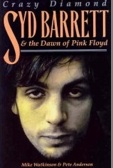One Vision
I'm confused. More precisely, I'm undecided. It's all about Live 8 and Make Poverty History. Who organized this mess?
Should I go to the Live 8 concert in Hyde Park on Saturday? Or should I head up to Edinburgh for the Make Poverty History Rally? The rally is where it's really at, if you ask me. I'm quite keen to take part in Operation HaHaHaa (Helping Authorities House Arrest Half-witted Authoritarian Androids), which will begin during the July 6th global day of action and blockades. I have work I can't get away from next week, so being in Edinburgh next week doesn't look very doable when I glance at my diary. That's just pathetic! It seems like I've dug myself into a hole and I'm just work on making poverty history in my own life rather than for others in my lifetime.
The concert in Hyde Park is as attractive to me as an open flame to a mosquito. Still, without a ticket to the concert, or even the big screen area/s, it seems rather silly to head towards London this weekend. Getting there is not a problem. Yet the thought of making the trip to just sit or stand somewhere quite far off all the action in Hyde Park doesn't excite me at all. I'd much rather just watch the concert on TV. After all, that's what the official Live 8 website urges people without a ticket do: watch Live 8 on TV and online.
My last hope for a ticket to the concert came from BBC Radio 1. I'm too old to be considered for anything associated with Radio 1 (especially now that John Peel is gone) and not having a mobile phone must disqualify me automatically. Strangely I find solace in thinking how much worse off people living in extreme poverty have it from me. If only their cause for concern was just getting a stupid ticket to a rock concert. I wonder if Bob Geldof is sophisticated enough to realize this situation. He strikes me as a tunnel visionary; not that there's anything really wrong with that. It was quite amusing to hear Gordon Brown describe Geldof as both his mentor and his tormenter on TV the other night.
So it looks like I'm staying in Scarborough this weekend after all. You never know, I could change my mind at the last minute and just go anyway. I've been known to do that sort of thing. Perhaps I need a tor/mentor of my own.


 It's all a healthy mixture of live art and cultural resistance training camp for civil disobedience strategies and non-violent direct action. It was good to have the opportunity to buy a copy of the Lab of ii's video production of
It's all a healthy mixture of live art and cultural resistance training camp for civil disobedience strategies and non-violent direct action. It was good to have the opportunity to buy a copy of the Lab of ii's video production of 

 The Digital Communities conference included extensive programmes at both the
The Digital Communities conference included extensive programmes at both the 




















